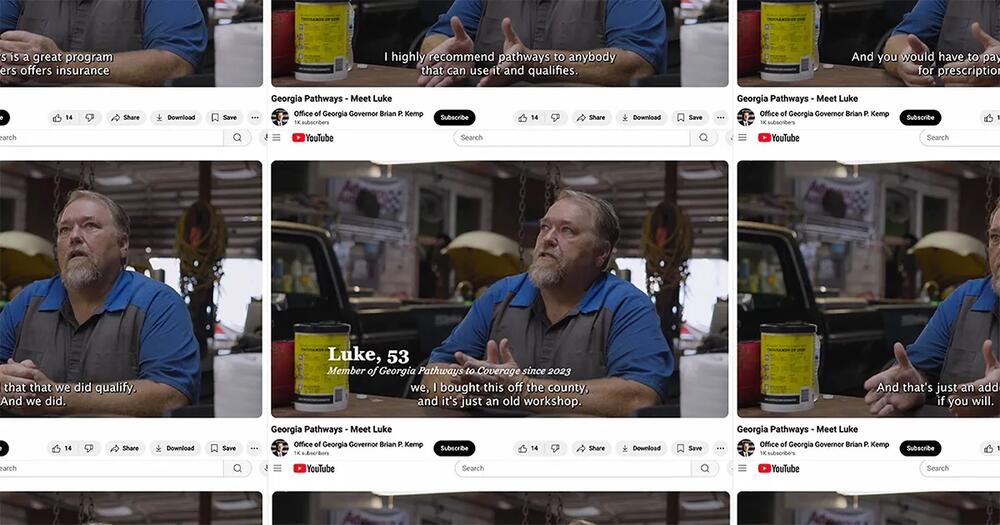
Caption
Luke Seaborn appeared in a 2024 promotional video for Georgia Pathways to Coverage, the state’s insurance program. “I used to think of Pathways as a blessing,” Seaborn recently told The Current and ProPublica. “Now, I’m done with it.”
Credit: Photo Illustration and YouTube screenshots by ProPublica



